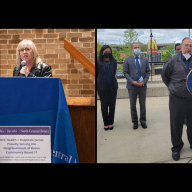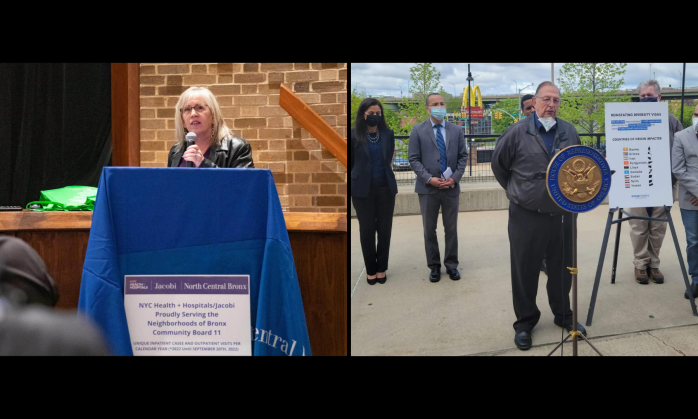An innovative, new program designed by a well-known expert in the field of adolescent mental health is seeking to reduce both the incidence of Latina teenage suicide, as well as the stigma associated with getting treatment.
Comunilife, a metal health services provider registered with the New York State Office of Mental Health, whose Vida Guidance Center is located at 2064 Boston Road between E. 179th and E. 180th streets in West Farms, is offering new programming to the Hispanic community that raises awareness of the alarmingly high suicide rates among young Latinas.
Two programs, Life Is Precious which is a non-clinical creative arts program aimed at recognizing and reducing stressors, and Proyecto Vida, another general education program for the public at large, are currently available.
“In adolescence, there is a natural process of acting out and rebellion that we all go through,” Dr. Rosa Gil, president and CEO of Comunilife, said. “Other populations do not have this prevalence of teenage suicide. We have to ask ourselves ‘why is this so prevalent among Latinas when it doesn’t happen as frequently in the African-American, white, or Asian communities?’”.
Latina girls between the ages of 12 and 16 have the highest suicide rate in the nation, according to the Center for Disease Control and Dr. Gil. One in six will attempt suicide, according to Gil, who urges all young women and their families who are at risk to seek treatment.
Gil said that often the young girls, who are caught in the position of acting as lingual and also cultural translators for their parents, feel a very intensive clash of values between what may be acceptable in their parents’ eyes and what is desirable according to their peers in the school system.
Gil stated that often the school system, which has difficulties fully dealing with the challenges posed by newly arrived immigrant schoolchildren, makes things more burdensome for this population.
This often leads to the young Latina girls, and other immigrant children, to doubt their own abilities when a language barrier causes poor marks.
“When the school system calls to tell the parents that their girls are not performing well, the parents often come to see themselves as failures because the school system is blaming them,” Gil said. “The school system blames the parents from the girls acting out, and this creates tremendous conflict in the households.”
Comunilife also has programs for parents: a dominos club for fathers and ‘Tertulias Club’ for mothers. Comunilife also identifies young adolescent peers of the at risk population who can serve as good role models through mentoring. The state Office of Mental Health funds much of Comunilife’s work.
“There is such a stigma associated with mental illness, in the Latina community and everywhere else,” Gil stated. “We are trying to covey to the public that mental illness requires treatment just like physical illness.”
For more information about Comunilife, call (718)364-7700.























